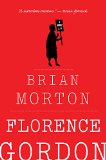Summary | Excerpt | Reading Guide | Reviews | Beyond the book | Read-Alikes | Genres & Themes | Author Bio

John Banville, the Man Booker Prize–winning author of The Sea and Ancient Light, now gives us a new novel - at once trenchant, witty, and shattering - about the intricacies of artistic creation, about theft, and about the ways in which we learn to possess one another, and to hold on to ourselves
Equally self-aggrandizing and self-deprecating, our narrator, Oliver Otway Orme ("O O O. An absurdity. You could hang me over the door of a pawnshop"), is a painter of some renown and a petty thief who has never before been caught and steals only for pleasure. Both art and the art of thievery have been part of his "endless effort at possession," but now he's pushing fifty, feels like a hundred, and things have not been going so well. Having recognized the "man-killing crevasse" that exists between what he sees and any representation he might make of it, he has stopped painting. And his last act of thievery - the last time he felt its "secret shiver of bliss" - has been discovered. The fact that the purloined possession was the wife of the man who was, perhaps, his best friend has compelled him to run away - from his mistress, his home, his wife; from whatever remains of his impulse to paint; and from a tragedy that has long haunted him - and to sequester himself in the house where he was born. Trying to uncover in himself the answer to how and why things have turned out as they have, excavating memories of family, of places he has called home, and of the way he has apprehended the world around him ("one of my eyes is forever turning towards the world beyond"), Olly reveals the very essence of a man who, in some way, has always been waiting to be rescued from himself.
Banville, a prolific and critically regarded Irish novelist whose previous works have won some of the most prestigious literary awards, is a mesmerizing prose stylist, and that's where he triumphs here. His looping, loopy sentences and his bracing and byzantine gift for turning a phrase provide The Blue Guitar with pretty much all of its satisfactions. Readers who have difficulty warming up to the somewhat cynical and even smug tone of the narrator might find the book a challenge, as the only perspective the reader is provided is the flippantly barbed worldview of the emotionally absent Ollie. But how can one completely resist a narrator who thinks of the rain "whispering against the window-panes with stealthy, lewd suggestiveness," or the waves that are "topped with soiled white spray and their deeply scooped, smooth undersides had a glassy and malignant shine"?..continued
Full Review
(825 words)
This review is available to non-members for a limited time. For full access,
become a member today.
(Reviewed by James Broderick).
It is not uncommon for a novelist to choose a title for a book from another work of art, such as a line from a song (You Must Remember This, by Joyce Carol Oates) or a painting (Girl With A Pearl Earring, by Tracy Chevalier). The title of John Banville's novel The Blue Guitar comes from a Wallace Stevens poem entitled "The Man with the Blue Guitar." He even uses a quote from the poem as an epigraph to the novel: "Things as they are/Are changed upon the blue guitar." (More about Wallace Stevens in our 'Beyond the Book' for Thirteen Ways of Looking)
 Stevens' poem, one of his best known and critically lauded works, is itself inspired by another famous work of art, a painting by Pablo Picasso titled The Old Guitarist. The painting, ...
Stevens' poem, one of his best known and critically lauded works, is itself inspired by another famous work of art, a painting by Pablo Picasso titled The Old Guitarist. The painting, ...
This "beyond the book" feature is available to non-members for a limited time. Join today for full access.

If you liked The Blue Guitar, try these:

by Jill Bialosky
Published 2016
"Like Edward feels upon discovering a transcendent piece of art, this book finds that little opening at the edge of your soul and seeps in."

by Brian Morton
Published 2015
A wise and entertaining novel about a woman who has lived life on her own terms for seventy-five defiant and determined years, only to find herself suddenly thrust to the center of her family's various catastrophes.